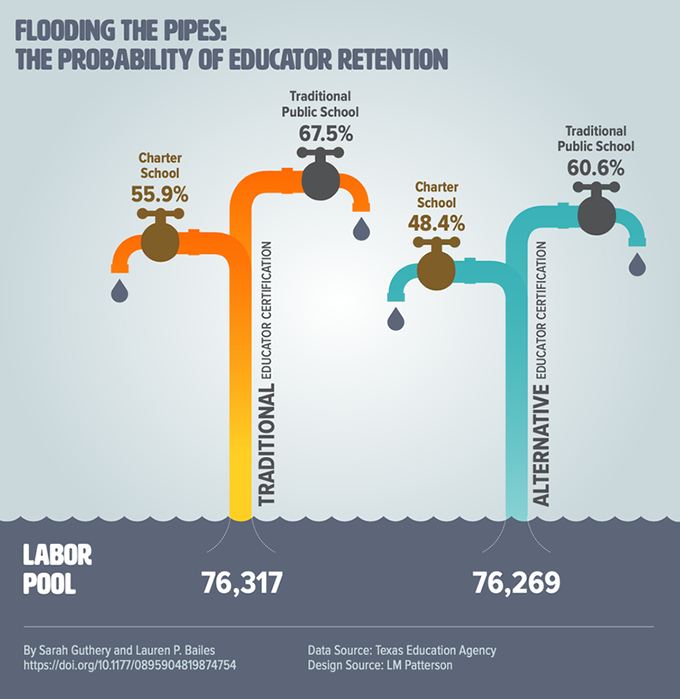
Two major factors matter when it comes to predicting how long a new teacher will stay on the job – how they got certified and the kind of school where they first teach.
As researchers who study the job market for new teachers, we recently published these findings based on our study of 175,664 new teachers in Texas from 2000 to 2015 in Education Policy.
We looked at teachers who were prepared in one of two ways: They either went to a college of education, which is the traditional route to becoming a teacher, or they got certified through an alternative certification program, which can mean they had less time in the classroom before becoming certified. Alternative certificates may be issued by universities, districts or even individual schools and typically do not require teaching degrees or traditional student teaching experiences.

Teachers with traditional certifications in public schools are likely to stay in the teaching field longer than their peers with alternative certification who started out at a charter school. Sarah Guthery and Lauren P. Bailes
We found that a traditionally certified teacher in a traditional public school has a 67.5% chance of staying in education, while a teacher who went through an alternative certification program and started out at a charter school has a 48.4% chance.
Why it matters
Retaining new teachers is critical to addressing teacher shortages. Our study shows that thousands of people want to be teachers, but even under the best circumstances only 61.8% will still be teaching in five years.
Despite schools’ desperate need for new teachers, our findings suggest that teacher retention is not based just on how they are certified or the type of school where they are placed, but a combination of the two. So policymakers and teacher preparation programs must consider carefully how to set up new teachers for long-term success.
What’s next
Our study calls for a closer look at other factors that may affect how long teachers stay on the job, such as school culture, leadership and overall workplace satisfaction.
Author Bios: Sarah Guthery is Assistant Professor of Curriculum and Instruction at Texas A&M University-Commerce and Lauren P. Bailes is Assistant Professor of Educational Leadership at the University of Delaware
